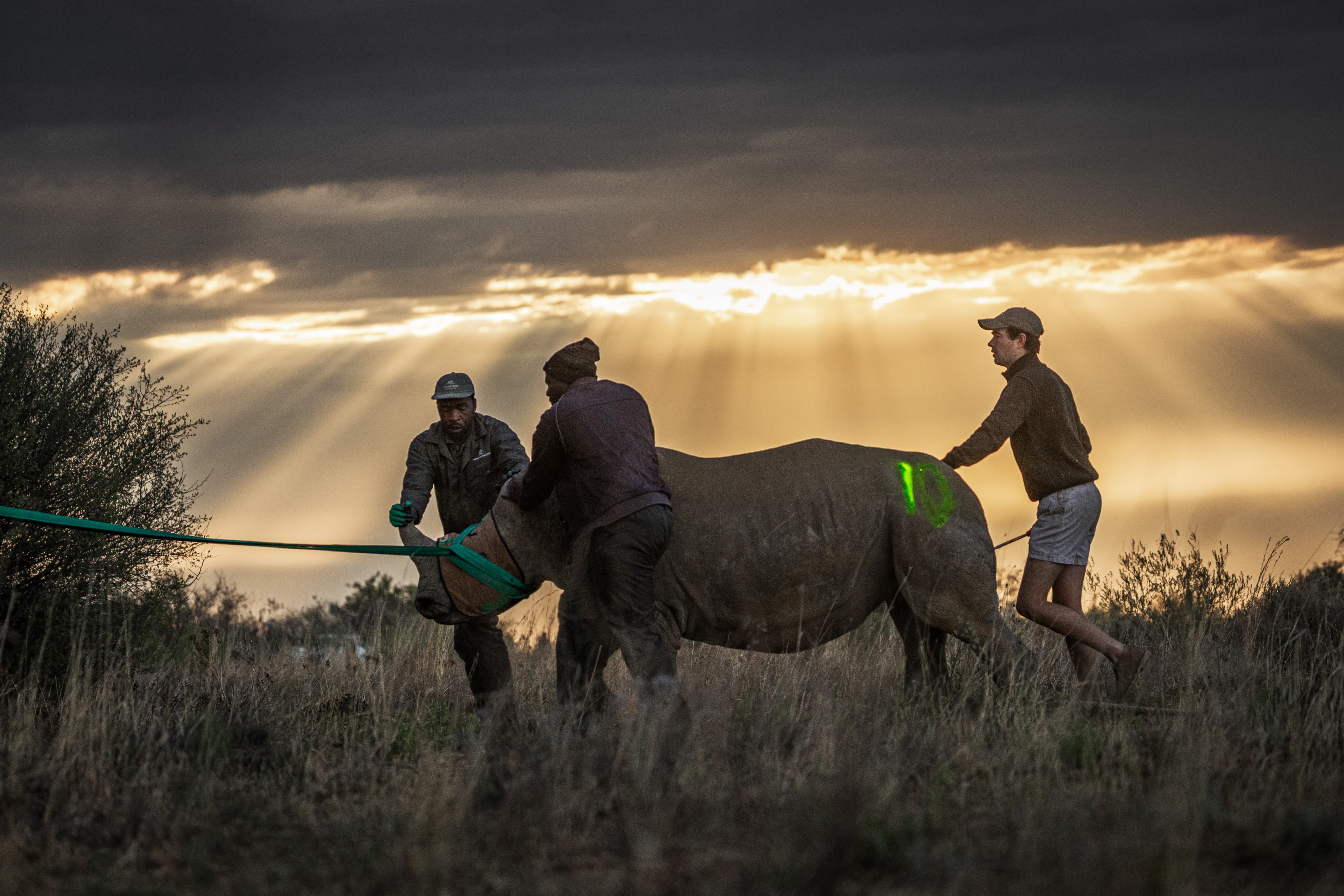Southern white rhinos have been successfully translocated to Dinokeng Game Reserve in Gauteng, South Africa, as part of African Parks’ 10-year Rhino Rewild initiative placing 2 000 rhinos in secure protected areas of Africa.

Translocation is a collaborative process undertaken by Dinokeng Game Reserve, WeWild Africa and the Global Humane Conservation Fund of Africa. The rhinos are protected and monitored under Dinokeng’s stringent security measures to ensure their safety and contribution to long-term conservation goals.

Donovan Jooste, Rhino Rewild Project Manager, says: “The success of Rhino Rewild is about collaboration and working with partners who share the vision of creating safe wild spaces and managing them effectively – in which wildlife such as rhino can thrive. Dinokeng Game Reserve fits that profile where we know these rhino will be protected and can contribute to impactful conservation within South Africa that also benefits local communities.”

Dinokeng Game Reserve, spanning 19 000 hectares, is a partnership between Gauteng Provincial Government and 180 private landowners. Since its establishment in 2011, the reserve has transitioned from agricultural land into a thriving big five eco-tourism destination creating over 800 permanent jobs.
Reflecting on the translocation, Hartogh Streicher, Chairperson of the Dinokeng Management Association, says: “We are extremely pleased to receive these rhino from African Parks, to supplement our current population of southern white rhino, enhancing this big five destination and fulfilling our vision for this landscape. Our main focus is on restoring once-degraded lands through rehabilitation and conservation and ensuring people and nature can grow together.”

The southern white rhino population has faced significant challenges from poaching to habitat loss. Once critically endangered in the 1930s with only 30 to 40 individuals remaining, their population rebounded to approximately 21 000 by 2012 due to conservation efforts. However, poaching over the past decade has reduced their numbers to around 17 500.

The Rhino Rewild initiative aims to address the decline by relocating rhino from breeding facilities to secure habitats across the continent.

The initiative also aligns with efforts to maintain biodiversity and strengthen ecosystems. As mega-herbivores, rhino play a vital role in shaping savannah landscapes, which contribute to global carbon storage and ecological balance.
The translocation was funded by the Rob Walton Foundation, the Pershing Square Foundation and ongoing support from WeWild Africa and the Aspinall Foundation.






















